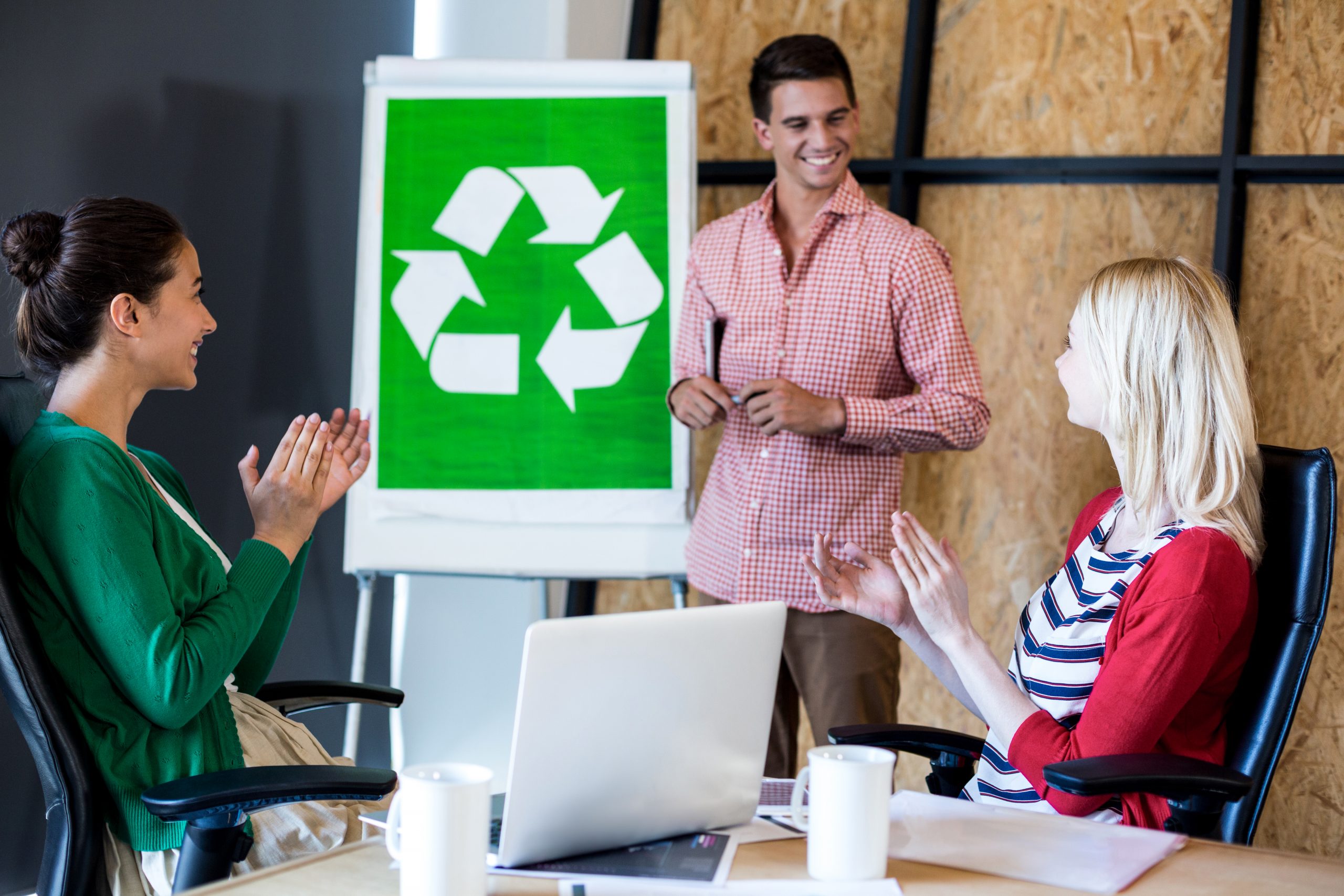On average, Americans spend one-third of their day at work. According to U.S. EPA, the average American office worker uses 10,000 sheets of copy paper each year. That’s four million tons of copy paper used annually! We should be making environmentally conscious decisions at the office just like we do at home. Athens Services recommends the following 10 tips to help reduce waste at your workplace while saving resources, money, and the environment.

Recycling Ambassadors can support your recycling and waste reduction efforts in a variety of ways. Consider individuals who are passionate about the environment and have a good rapport with their coworkers. Recycling Ambassadors can help:
An audit of a business’ waste stream can inform management on the type of waste being generated and provide valuable insight on employee disposal habits. The following step-by-step guide will help you conduct your own onsite visual waste stream audit where percentage-based results are calculated per container content observations.
Buy reusable and refillable items for the office kitchen to replace single-use, foodware disposables. Consider switching out these items or encourage staff to B.Y.O. (Bring Your Own):
Add or replace kitchen appliances and accessories with ones that encourage reuse, such as:
The USDA states that up to 40% of food in the United States goes uneaten, while CalRecycle reports that food accounts for 18% of waste in California’s landfills. The California Food Bank reports that 1 in 5 Californians struggle with food insecurity, the occasional or constant lack of access to the food one needs for a healthy, active life.
Landfills are the third largest source of methane in California, with organics and food waste in landfills emitting 20% of the state’s methane. Methane is a greenhouse gas that is 84 times more potent than carbon dioxide.
*Awards should encourage reuse or be waste free (e.g. online gift certificates).
Large events and venue facilities are required to plan for solid waste reduction and upon request, report information regarding the waste reduction efforts.
* Balloons (including latex and mylar) are not recyclable or compostable. When released (accidently or on purpose) they can harm wildlife or get caught in power lines, which can cause outages and fires.
** Anything with glitter or foil goes in the garbage. These materials will contaminate recycling. Paper and “biodegradable” glitter and confetti will contaminate storm drains and waterways if not disposed of properly.
Copyright (C) 2026 Athens Services. All Rights Reserved.